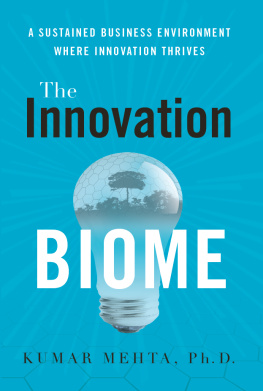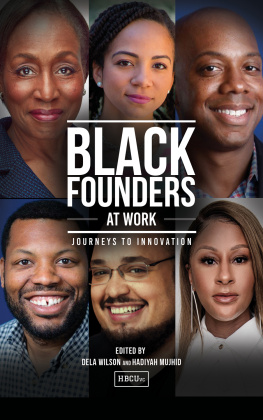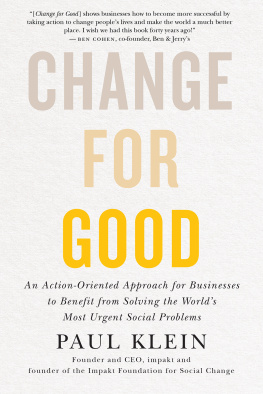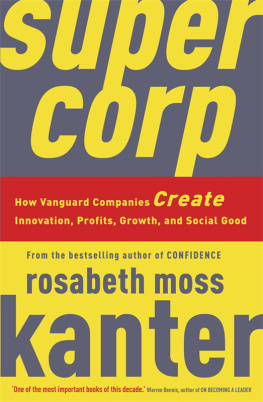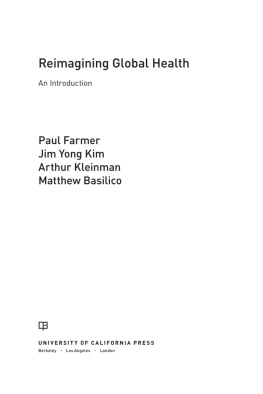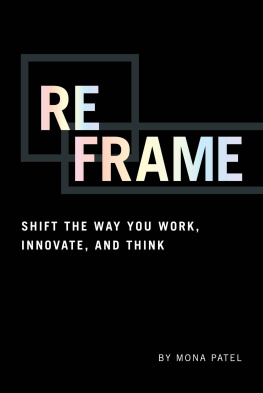Contents
Guide
Page List
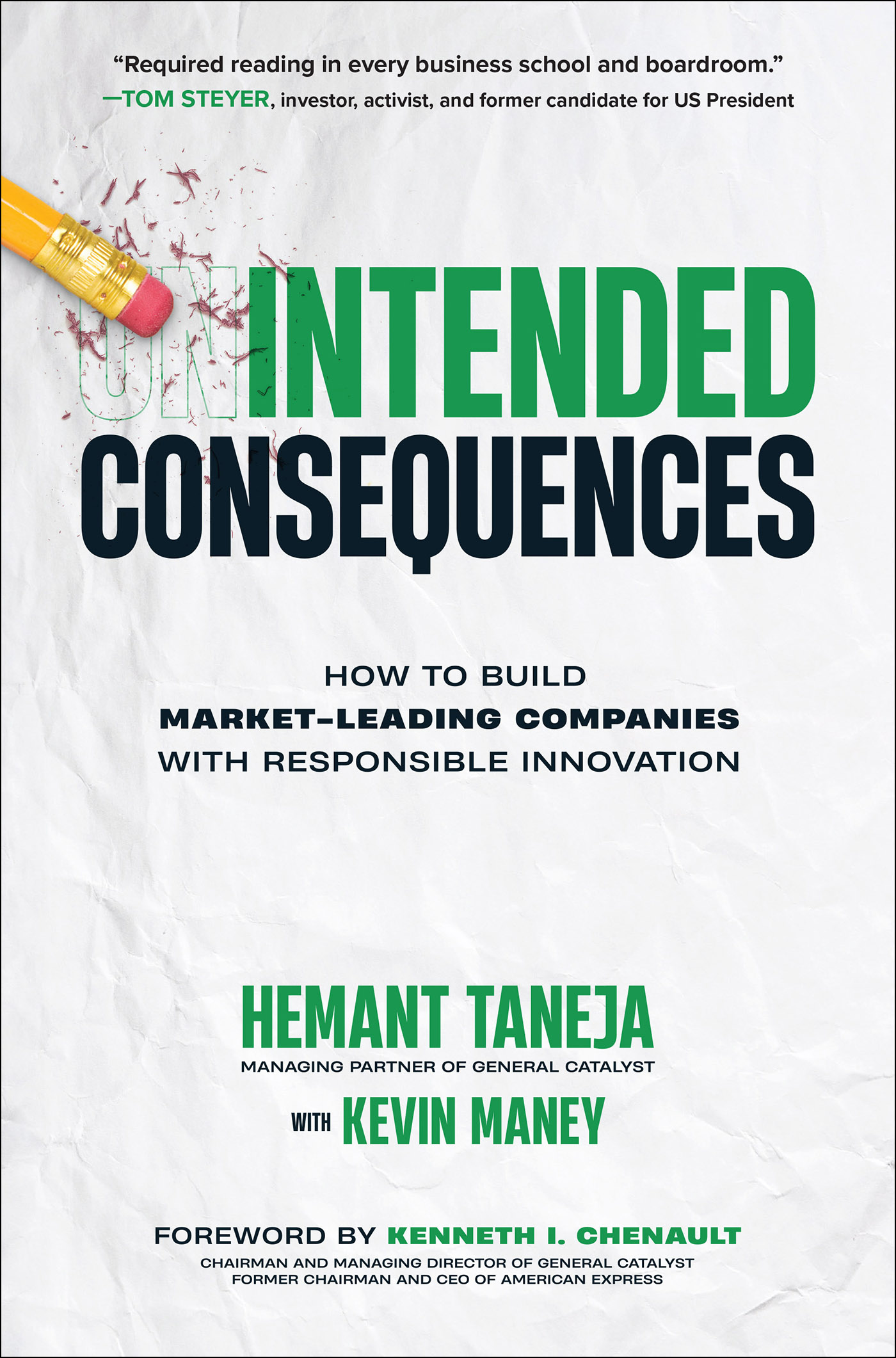
PRAISE FOR
INTENDED CONSEQUENCES
AND HEMANT TANEJA AND KEVIN MANEY
Intended Consequences thoughtfully outlines how and why capitalism must change in the twenty-first century. This important book should be required reading in every business school and boardroom in America.
Tom Steyer, investor, activist, and former candidate for US President
Hemant Taneja and Kevin Maney lay out a thoughtful and robust playbook for how business leaders can and should build a culture of responsibility behind the companies and innovations they bring to market. As the authors rightly assert, if your technology disrupts, you must also repairan approach that benefits not only companies but workers and society as well. Intended Consequences is a must-read.
Penny Pritzker, founder of PSP Partners and former US Secretary of Commerce
Intended Consequences provides a blueprint for founders, investors, and leaders who aspire to build transformative businesses where impact is a fundamental feature. Hemant is a gifted thinker and one of the few people I know with the mind and courage to steer technology in the right direction. This is a must-read for anyone motivated to change the world.
Jim Breyer, founder and CEO of Breyer Capital
A prescription for a healthier society, this book describes a proactive approach to creating durable companies intentionally designed to make the world a better place.
Marc Harrison, MD, President and CEO of Intermountain Healthcare
An urgent book from one of the worlds most forward-thinking venture capitalists. The argument in Intended Consequences is built on a searing critique of companies that rush to innovate without consideration of the potentially toxic ripple effects, but the real power in the book comes from its playbook on how to build companies that innovate responsibly, with a more thoughtful, values-driven intentionality. A vital read for any founder committed to building a future-fit business.
Youngme Moon, Donald K. David Professor of Business at Harvard Business School and author of Different
Hemant makes a powerful case for why companies must own their impact on society. As company builders, we have an opportunity to take on humanitys greatest challenges (climate change, inequality) and to transform vital frontiers (healthcare, energy, finance). Hemant shares a framework for leaders to build intentionally and to create a positive, enduring societal impact. This thesis is the start of a critical global discussion among investors, business leaders, and innovators about how we must harness the power of capitalism and responsible innovation for good above all else.
Ashwini Zenooz, President and CEO of Commure
Intended Consequences provides invaluable guidance for the emerging data enterprise of the twenty-first century. Taneja and Maney point the way toward a future shaped not by zero-sum trade-offs among stakeholders but by fresh approaches and values-based choices. And while their focus is on startups, the lessons are equally applicable to established enterprises, as we move into a new era of stakeholder capitalism.
Jon Iwata, Executive Fellow at the Yale School of Management and former Chief Brand Officer of IBM
This is a powerful and paradigm-shifting book, which arguesas I firmly believethat it is not only possible but imperative that todays entrepreneurs and investors do well by doing good in the world. The businesses that will endure and have generation-defining, category-defining impact will do so because they seek to solve real social problems, align their business models with their intentions, and hold themselves accountable for creating lasting outcomes.
Toyin Ajayi, cofounder and President of Cityblock Health
Throughout my career, Ive had the privilege of working in innovative environments focused on making a difference. Responsible innovation matters and is foundational in the era of stakeholder capitalism. Intended Consequences not only thoughtfully articulates why responsible innovation matters but also provides a framework and actionable plan to incorporate it into the nucleus of a company.
Robin Washington, healthcare entrepreneur and former Chief Financial Officer of Gilead Sciences

Copyright 2022 by Hemant Taneja, General Catalyst LLC, and Kevin Maney. All rights reserved. Except as permitted under the United States Copyright Act of 1976, no part of this publication may be reproduced or distributed in any form or by any means, or stored in a database or retrieval system, without the prior written permission of the publisher.
ISBN: 978-1-26-428550-1
MHID: 1-26-428550-7
The material in this eBook also appears in the print version of this title: ISBN: 978-1-26-428549-5, MHID: 1-26-428549-3.
eBook conversion by codeMantra
Version 1.0
All trademarks are trademarks of their respective owners. Rather than put a trademark symbol after every occurrence of a trademarked name, we use names in an editorial fashion only, and to the benefit of the trademark owner, with no intention of infringement of the trademark. Where such designations appear in this book, they have been printed with initial caps.
McGraw-Hill Education eBooks are available at special quantity discounts to use as premiums and sales promotions or for use in corporate training programs. To contact a representative, please visit the Contact Us page at www.mhprofessional.com.
TERMS OF USE
This is a copyrighted work and McGraw-Hill Education and its licensors reserve all rights in and to the work. Use of this work is subject to these terms. Except as permitted under the Copyright Act of 1976 and the right to store and retrieve one copy of the work, you may not decompile, disassemble, reverse engineer, reproduce, modify, create derivative works based upon, transmit, distribute, disseminate, sell, publish or sublicense the work or any part of it without McGraw-Hill Educations prior consent. You may use the work for your own noncommercial and personal use; any other use of the work is strictly prohibited. Your right to use the work may be terminated if you fail to comply with these terms.
THE WORK IS PROVIDED AS IS. McGRAW-HILL EDUCATION AND ITS LICENSORS MAKE NO GUARANTEES OR WARRANTIES AS TO THE ACCURACY, ADEQUACY OR COMPLETENESS OF OR RESULTS TO BE OBTAINED FROM USING THE WORK, INCLUDING ANY INFORMATION THAT CAN BE ACCESSED THROUGH THE WORK VIA HYPERLINK OR OTHERWISE, AND EXPRESSLY DISCLAIM ANY WARRANTY, EXPRESS OR IMPLIED, INCLUDING BUT NOT LIMITED TO IMPLIED WARRANTIES OF MERCHANTABILITY OR FITNESS FOR A PARTICULAR PURPOSE. McGraw-Hill Education and its licensors do not warrant or guarantee that the functions contained in the work will meet your requirements or that its operation will be uninterrupted or error free. Neither McGraw-Hill Education nor its licensors shall be liable to you or anyone else for any inaccuracy, error or omission, regardless of cause, in the work or for any damages resulting therefrom. McGraw-Hill Education has no responsibility for the content of any information accessed through the work. Under no circumstances shall McGraw-Hill Education and/or its licensors be liable for any indirect, incidental, special, punitive, consequential or similar damages that result from the use of or inability to use the work, even if any of them has been advised of the possibility of such damages. This limitation of liability shall apply to any claim or cause whatsoever whether such claim or cause arises in contract, tort or otherwise.


